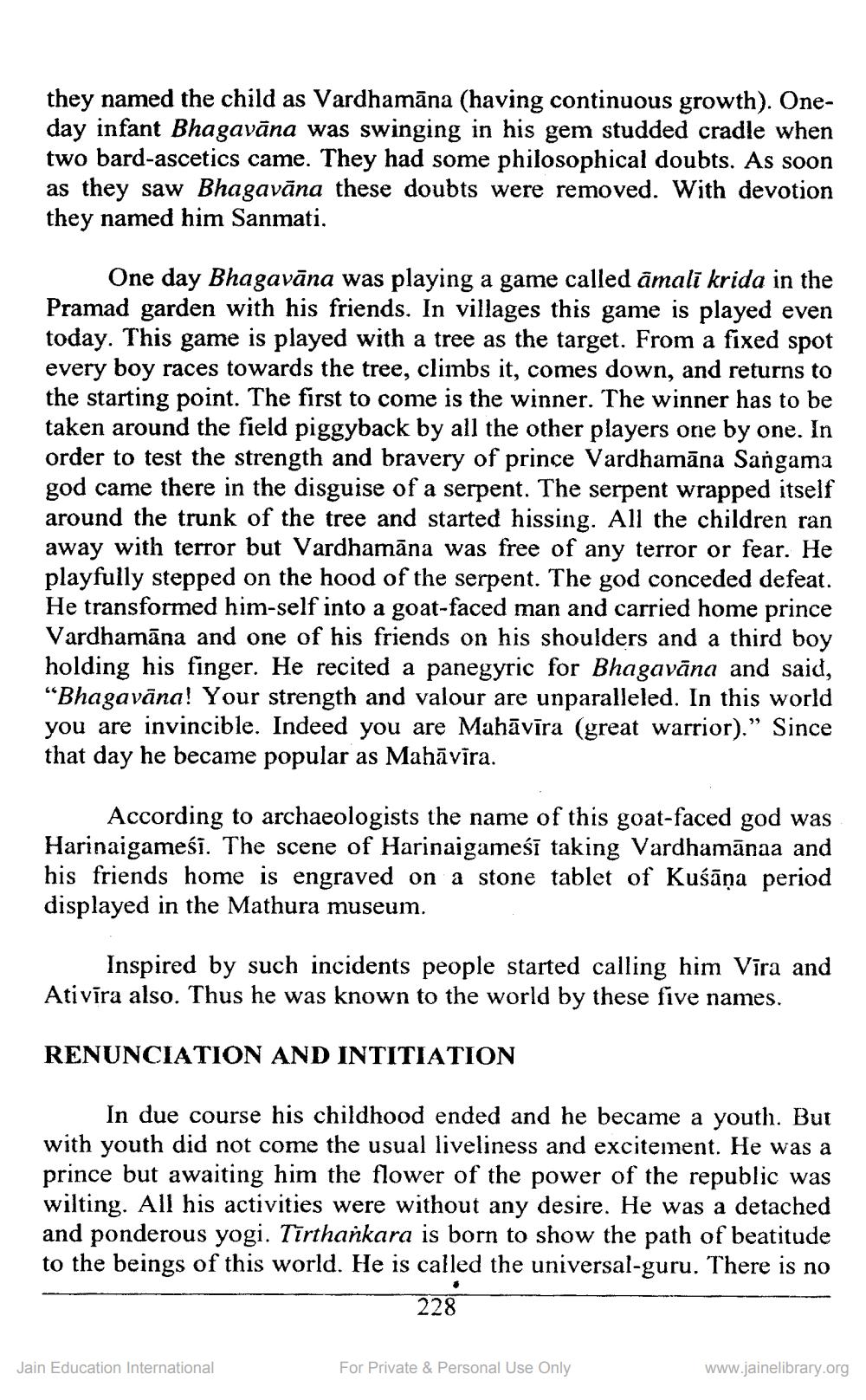________________
they named the child as Vardhamāna (having continuous growth). Oneday infant Bhagavāna was swinging in his gem studded cradle when two bard-ascetics came. They had some philosophical doubts. As soon as they saw Bhagavāna these doubts were removed. With devotion they named him Sanmati.
One day Bhagavāna was playing a game called âmali krida in the Pramad garden with his friends. In villages this game is played even today. This game is played with a tree as the target. From a fixed spot every boy races towards the tree, climbs it, comes down, and returns to the starting point. The first to come is the winner. The winner has to be taken around the field piggyback by all the other players one by one. In order to test the strength and bravery of prince Vardhamāna Sangama god came there in the disguise of a serpent. The serpent wrapped itself around the trunk of the tree and started hissing. All the children ran away with terror but Vardhamāna was free of any terror or fear. He playfully stepped on the hood of the serpent. The god conceded defeat. He transformed him-self into a goat-faced man and carried home prince Vardhamāna and one of his friends on his shoulders and a third boy holding his finger. He recited a panegyric for Bhagavāna and said, "Bhagavāna! Your strength and valour are unparalleled. In this world you are invincible. Indeed you are Mahāvīra (great warrior)." Since that day he became popular as Mahāvīra.
According to archaeologists the name of this goat-faced god was Harinaigameśi. The scene of Harinaigameśī taking Vardhamānaa and his friends home is engraved on a stone tablet of Kuśāņa period displayed in the Mathura museum.
Inspired by such incidents people started calling him Vīra and Ativīra also. Thus he was known to the world by these five names.
RENUNCIATION AND INTITIATION
In due course his childhood ended and he became a youth. But with youth did not come the usual liveliness and excitement. He was a prince but awaiting him the flower of the power of the republic was wilting. All his activities were without any desire. He was a detached and ponderous yogi. Tirthankara is born to show the path of beatitude to the beings of this world. He is called the universal-guru. There is no
228
Jain Education International
For Private & Personal Use Only
www.jainelibrary.org




